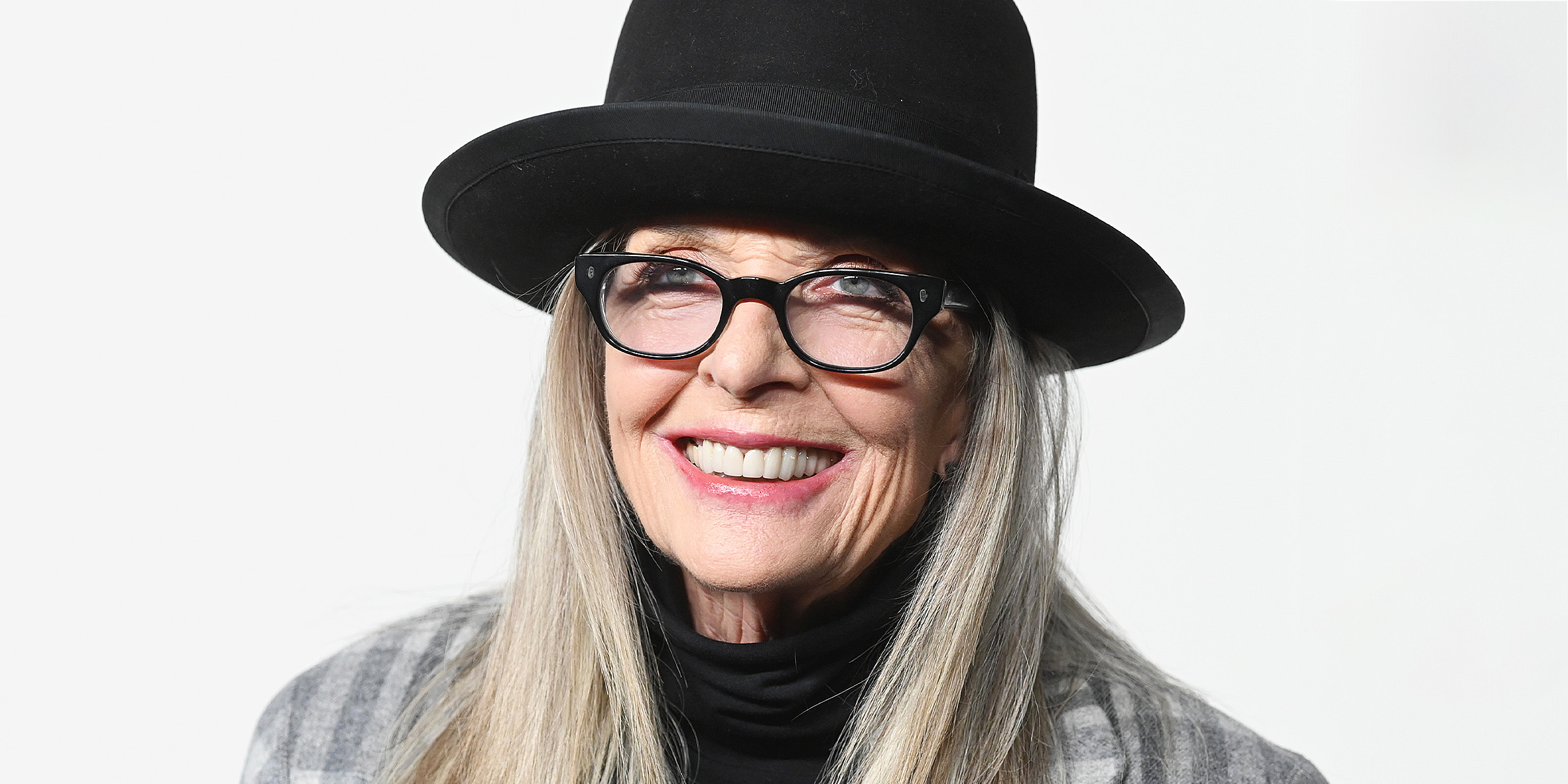
Inside Diane Keaton’s past Illnesses Before Her Health ‘Declined Very Suddenly’
The Hollywood icon died suddenly this past weekend, leaving the world reeling in unprecedented grief. Prior to her death, she faced several health battles, beginning in her 20s.
Diane Keaton, the beloved star of 1977's "Annie Hall" and "The Godfather" trilogy, passed away suddenly on Saturday morning, October 11, 2025. She was 79. The actress's cause of death has yet to be revealed, but sources close to her shared insight into her final days.
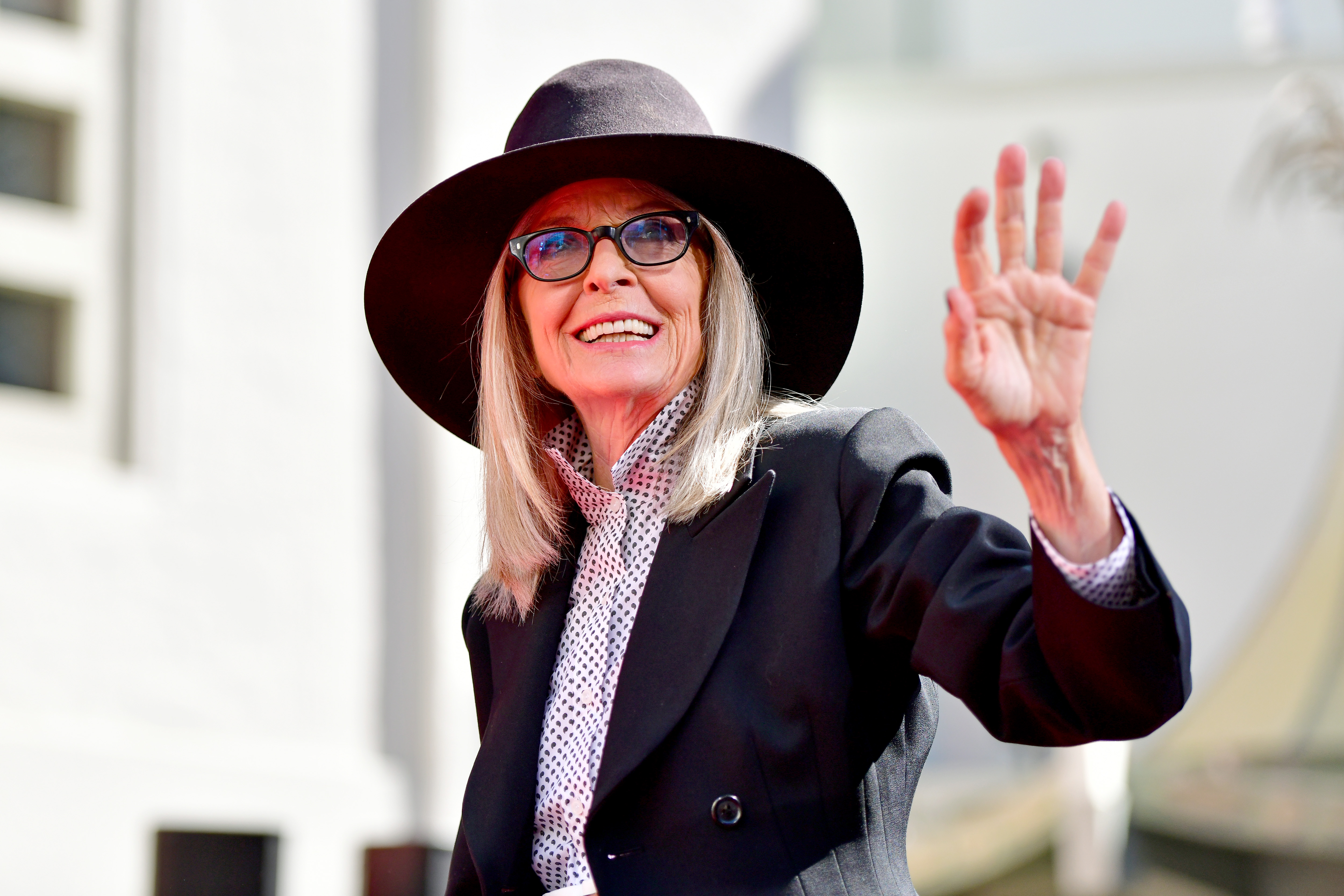
Diane Keaton attends the Handprint and Footprint in Cement Ceremony for Actress Diane Keaton hosted by TCL Chinese Theatre on August 11, 2022, in Hollywood, California. | Source: Getty Images
"She declined very suddenly, which was heartbreaking for everyone who loved her," a friend of the Oscar winner told People. "It was so unexpected, especially for someone with such strength and spirit."
"In her final months, she was surrounded only by her closest family, who chose to keep things very private," the source added. "Even longtime friends weren't fully aware of what was happening."
It's unknown what Keaton battled in her final months, but the "Something's Gotta Give" star was previously open about her past illnesses. At 21, she was diagnosed with basal cell carcinoma, a form of skin cancer. "It's a family history," she told the Los Angeles Times in 2015.
"I remember my Auntie Martha had skin cancer so bad they removed her nose," she continued. "My father had basal skin cancer and my brother had it. It's tricky with this skin cancer. That's why you've got to put the sunblock on."
Keaton admitted she didn't take care of her skin when she was younger. "I didn't research and didn't really care and that was stupid because it's dogged me my entire adult life, even recently. I didn't start sun care until my 40s," she said.
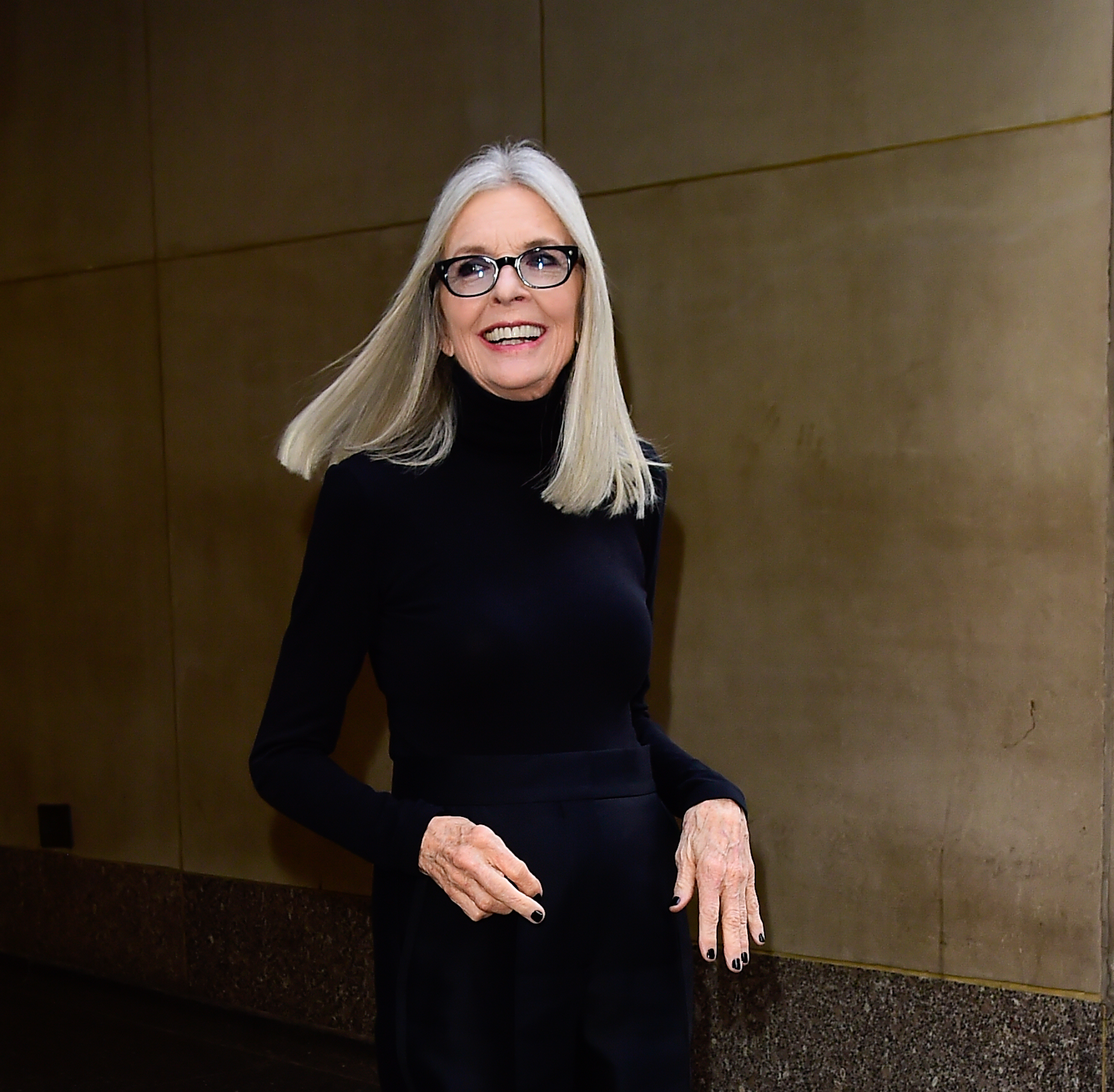
Diane Keaton is seen outside the "Today" show on May 8, 2023, in New York City. | Source: Getty Images
Decades after her skin cancer diagnosis, she was told she had squamous cell cancer, which took two surgeries to remove. In her 20s, she also struggled with an eating disorder. Keaton had become self-conscious after being asked to lose ten pounds for a role in a Broadway show.
During a 2014 interview on "The Dr. Oz Show," host Dr. Oz quoted an excerpt from her 2011 memoir, "Then Again," in which she delved deeper into her struggle with bulimia — what she described as "the lowest point" in her life.
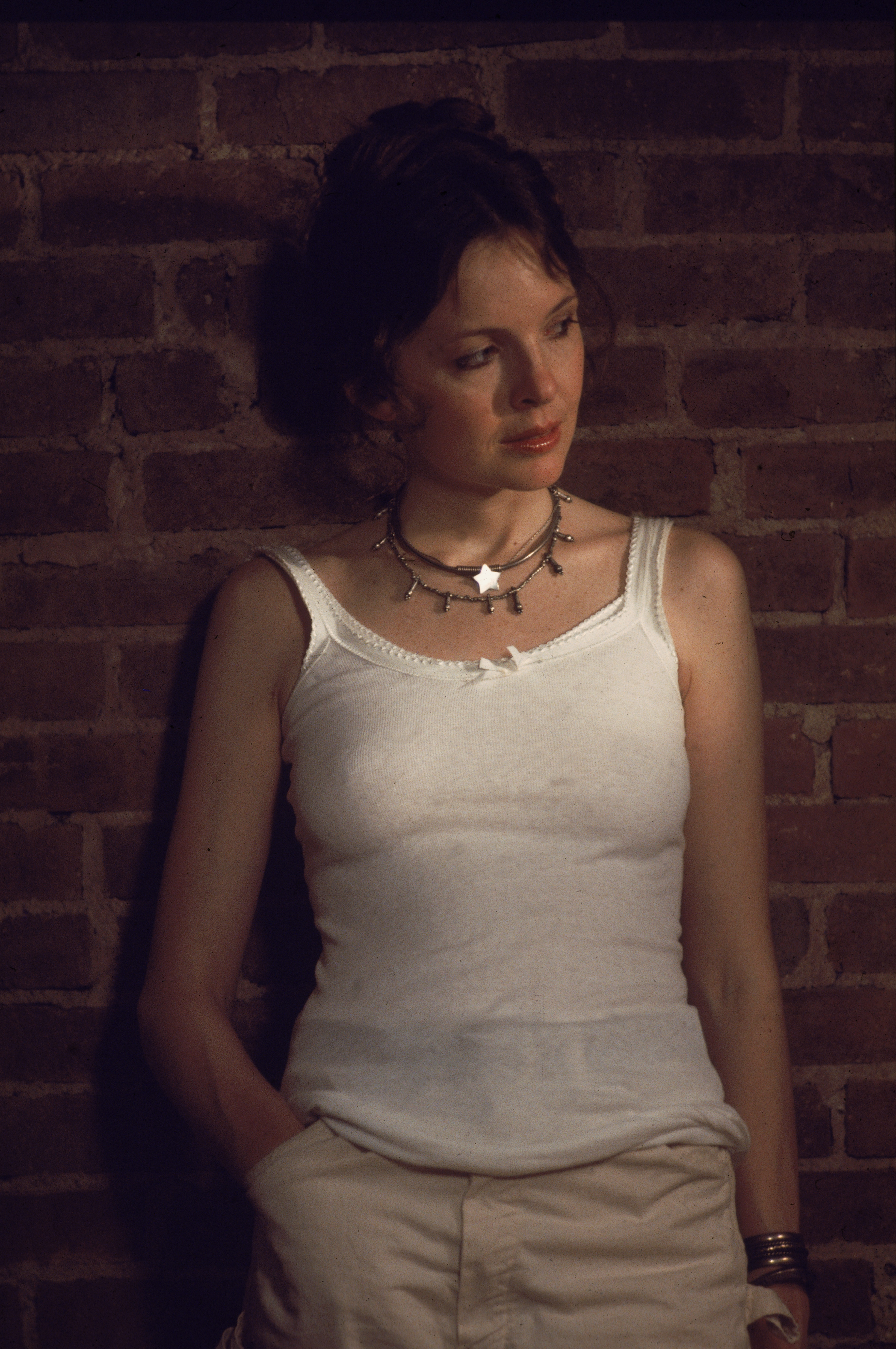
Diane Keaton wears a white tank top and leans against a brick wall in a scene from "Annie Hall," directed by Woody Allen, in New York, circa 1977. | Source: Getty Images
She revealed that a "typical dinner was a bucket of chicken, several orders of fries with blue cheese and ketchup, a couple TV dinners, a quart of soda, pounds of candy, a whole cake and three banana cream pies," which she would then vomit.
Eventually, someone told her that she seemed to have some "mental issues," and she began seeing an analyst five days a week. "I lied to her for one year. I pretended like there was nothing wrong, nothing at all," Keaton recalled.
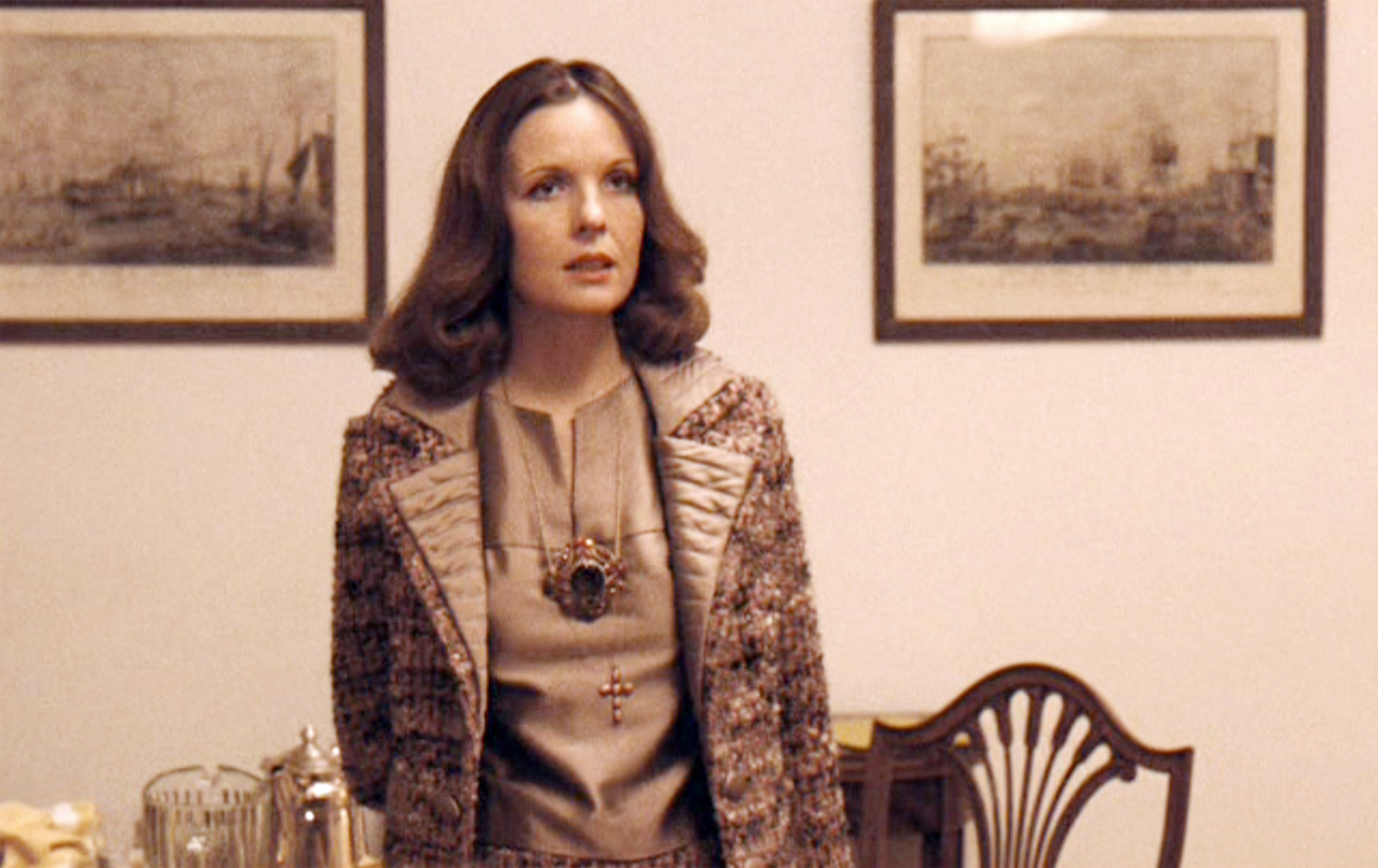
Diane Keaton as Kay Corleone in "The Godfather: Part II" circa 1974. | Source: Getty Images
"One day I got so anxious that I finally just blurted it out and I said to her [...], 'You know what? I got to tell you something right now. I throw up. And I'll tell you something else. I'm never stopping, so don't ask me any questions.' That's what I said to her. And of course, it was the beginning of the end," she said.
For another year, Keaton kept telling her analyst that she had no plans to stop her bulimic tendencies. Then, one day, she just did.
The information in this article is not intended or implied to be a substitute for professional medical advice, diagnosis or treatment. All content, including text, and images contained on barabola.com, or available through barabola.com is for general information purposes only. barabola.com does not take responsibility for any action taken as a result of reading this article. Before undertaking any course of treatment please consult with your healthcare provider.
